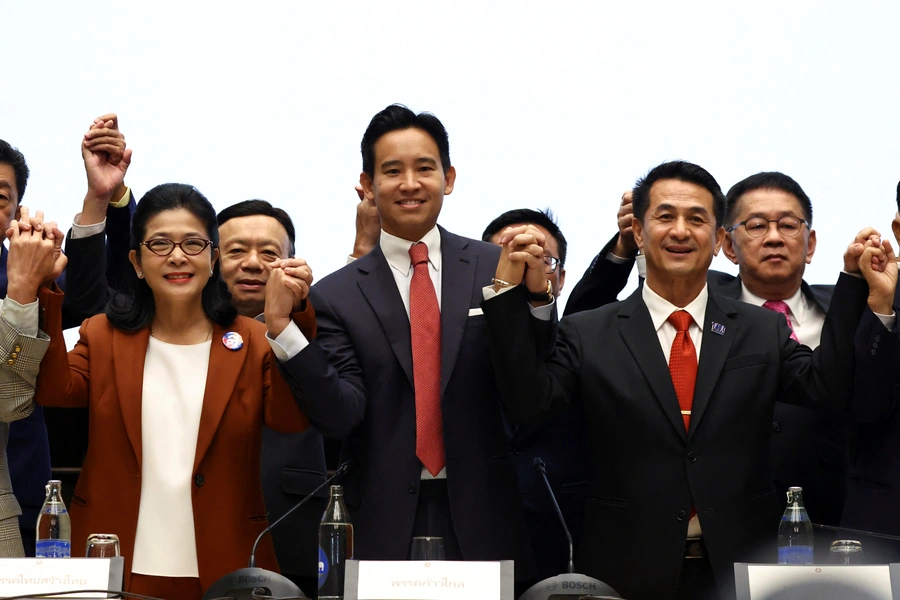Thailand’s Landmark Election: Who Will Ultimately Prevail?

After the top two pro-democracy parties gained a massive victory in Thailand’s national elections in May, the momentum seemed on their side to form a coalition. The pro-democracy parties needed to gain the support of a few extra MPs and convince some of the appointed upper house senators to achieve a majority (376) of both the upper and lower house to install the leader of Move Forward—the party with the most seats—as prime minister. In the highest turnout in Thai history according to the electoral commission (with more than 70 parties competing), voters clearly made their preference known. Move Forward and Pheu Thai, the two top pro-democracy parties, won almost 60 percent of the lower house seats.
But this pro-democracy coalition, with Move Forward leader Pita Limjaroenrat at its head, is hardly a done deal. Move Forward is a highly progressive party backed by young voters pushing for real institutional change, unlike any prior major Thai party. Despite the conservative nature of the 250-seat upper house of senators, who were essentially picked by the military, Move Forward and its allies claim that its pro-democracy coalition is slowly persuading senators to side with them. They claim that Move Forward and its allies, including Pheu Thai, will be able to win the support of enough senators to bring the coalition’s numbers to 376 (upper and lower house combined) when parliament meets on July 3 and picks a new lower house speaker and new prime minister.
More on:
In May, Chaithawat Tulathong, Move Forward’s party secretary-general, told ThaiPBS that he had “held discussions with a group of senators, a number of whom have expressed concerns over the Move Forward party’s policies and hope that the new government will not cause any more political conflict [but that] after the discussions, the senators have a better understanding and are positive about the Move Forward party.” Then, just a few days ago, Pita and his allies claimed they were very close to getting enough support from senators to put them over the top.
However, obstacles remain. Pita and Move Forward have not locked down all these senatorial votes, and the party’s desire to make major reforms in how the military and the lese-majeste laws are handled will alienate many senators. Already, too, the establishment is using typical tactics to try to push Move Forward aside and essentially nullify its votes. A case has been lodged against Pita that could potentially ban him from politics and even put him in jail, and it is not out of the question that the Move Forward party, given Thailand’s compliant judiciary, could be banned.
Punchada Sirivunnabood notes in The Diplomat that if Move Forward and its allies attempt to obtain the support of 376 legislators but fail to do so, parliament will be left open to all sorts of horse-trading of the type common in Thai coalition-building after elections. As Punchanda also comments, one real possibility stemming from such a failure is a coalition then built in a "second round [of parliamentary voting]...[around] a Pheu Thai candidate or one of the other conservative parties, likely General Prawit Wongsuwan, the leader of the PPRP, proposed for prime minister. This would potentially force Move Forward into the opposition” and, almost surely, infuriate millions of Thai voters, a dangerous situation.
More on:
 Online Store
Online Store